Managing Post-Pandemic Anxiety: How to Face Society Again
Society is getting back on track with more and more people getting vaccinated. But with the increasing prospect of the world fully opening up once again, many of us feel like our social skills have gotten rusty. Feeling this newfound anxiety is valid; after all, you’ve spent the last year in quarantine, communicating with others through screens or behind a mask.
A recent study found that social anxiety symptoms have significantly increased during the pandemic: forgetting how to behave around people, feeling anxious about the shift in social patterns, or having difficulty in even the simplest of conversations.
Will you be able to handle this? Whether you already had social anxiety pre-pandemic or developed it in the midst of the crisis, there are coping strategies that will help you deal with your anxiety. You also have a choice to choose self-compassion and seek professional help.
But first, you need to know…
Where’s the Anxiety Coming From?
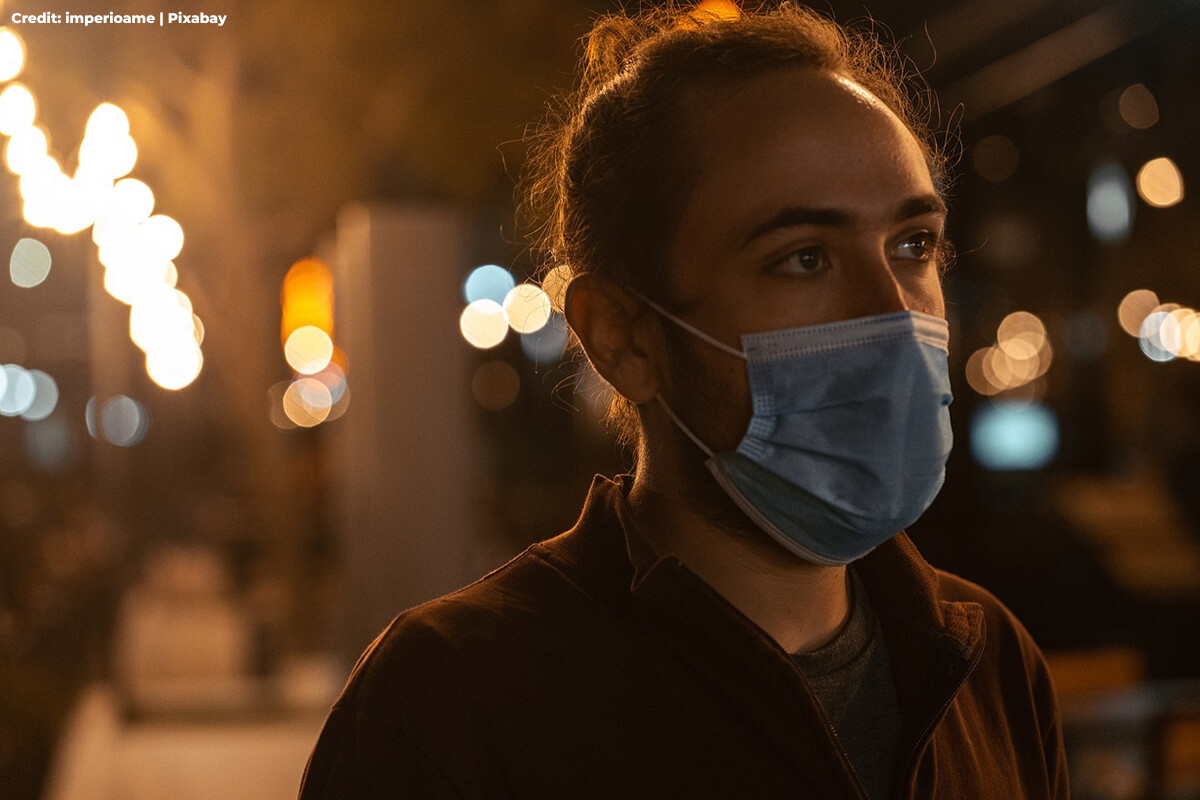
Like everything else, the first step to seeing the signs of anxiety and its impact on your health is validating that the trauma is real. Your anxiety is real. You may want to dismiss the trauma and grief you’ve experienced during the pandemic—try not to do that, because it may have counterproductive effects on your well-being.
Some of us might even be in denial or unaware that we’ve grown anxious because of the pandemic. That’s why it’s important to see the signs, so you’d know where the anxiety is coming from.
- What is social anxiety?
Social anxiety, or social anxiety disorder, is a mental health condition where the person feels an intense, persistent fear of being watched and judged by others. It is often associated with agoraphobia, the fear of open spaces or crowds.
These two, however, are different kinds of anxiety disorders that result from similar but contrasting situations. While people who are agoraphobic usually feel better in the company of a trusted companion, people with social anxiety may feel worse because of potential scrutiny by that companion.
- What are the signs and symptoms of social anxiety disorder?
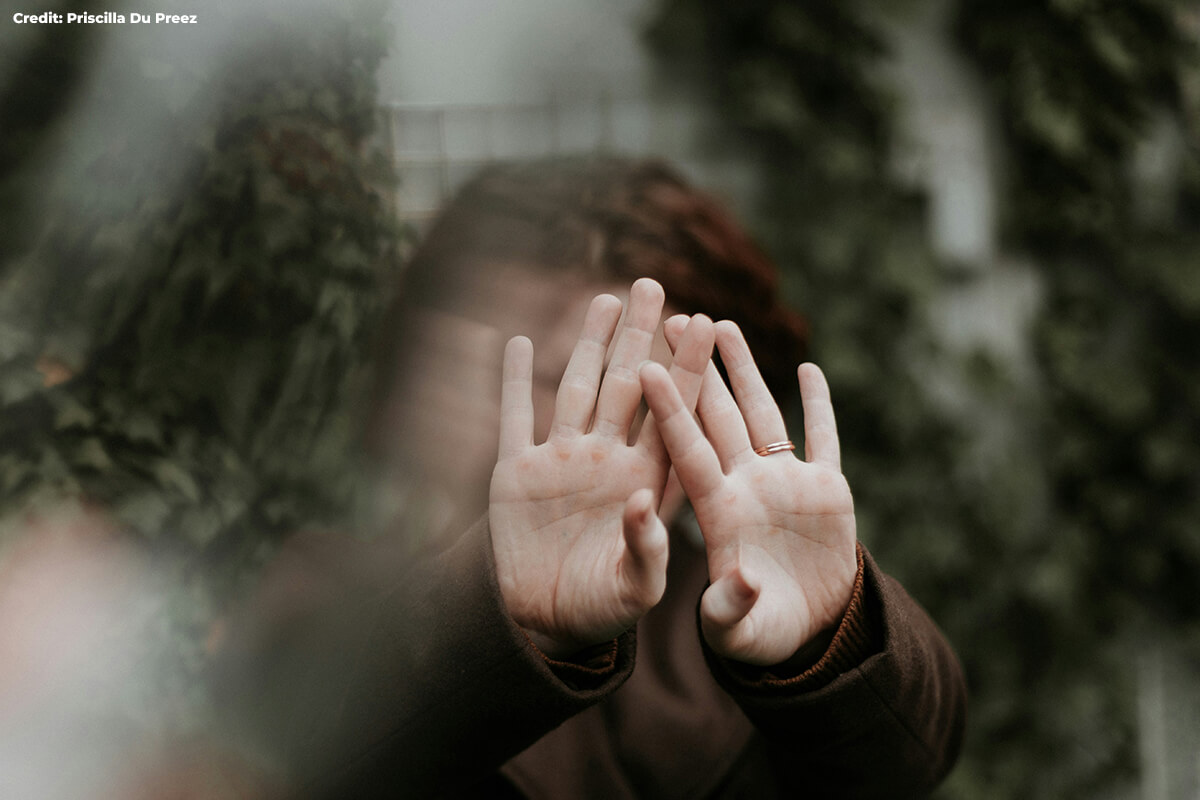
Being shy does not necessarily indicate that you have social anxiety. It’s more than a feeling of shyness or discomfort in certain situations. Social anxiety disorder includes the fear, anxiety, and avoidance that interfere with daily routines, work or other activities, and even relationships.
Physical symptoms include:
- Blushing
- Fast heartbeat
- Sweating
- Trembling
- Nausea
- Dizziness
- Trouble catching your breath
- Muscle tension
- Feeling that your mind has gone blank
Emotional and behavioural symptoms of social anxiety can include constant:
- Fear of:
- social situations, and any outcome
- others noticing that you look anxious
- interacting or talking with strangers
- physical symptoms that may cause you embarrassment
- Avoidance of:
- doing things out of fear of embarrassment
- situations where you might be the centre of attention
- Anxiety in anticipation of a feared activity or event where you interact with people
- Worry about embarrassing or humiliating yourself
Your symptoms can change over time. They may flare up if you’re facing a lot of changes, stress, or demands in life, like reopening the world after a year of lockdown.
- How does social anxiety affect you?
Surely, social anxiety has impacted how you function in your daily life. Common, everyday experiences such as making eye contact, starting conversations, or eating in front of others may be hard to endure when you have social anxiety.
- For those with existing social anxiety, last year was a breather and a buffer because they now had legitimate reason to turn down dinner invitations. As the world reopens, individuals with social anxiety will slowly have to face their fears and learn how to deal with their social anxiety.
- For those who developed it when COVID-19 came, dealing with anxiety is going to be stressful because, despite the excitement that comes with socializing with people, there’s a good chance you’ll be affected by the extra exposure.
Facing Society Again: Tips to Cope
After acknowledging what you’re thinking and feeling, it might be helpful to make solid plans to counter the uncertainty of the present moment and face society again. Although avoiding situations that produce anxiety may make you feel better now, your anxiety is likely to continue, and coping might be more difficult in the long term if you don’t get treatment for it.
Here are tips to cope with your social anxiety:

- Practice deep breathing exercises. To help you feel less anxious, practice deep breathing exercises like the 4-7-8 breathing technique where you breathe in for 4 seconds, hold your breath for 7 seconds, and exhale for 8 seconds. This breathing pattern has been known to reduce anxiety and help people sleep.
- Identify your trigger points. Know what makes you tick and devise a plan on what you will do when that happens, such as writing your thoughts down in a journal.
- Practice mindfulness or meditation. When you do, you get some sort of control of your anxiety. You can also go for meditative walks to feel less anxious and to clear your mind.
- Visualize a calming spot. Visualization works to expand your ability to rest and relax by focusing your mind on more calming and serene images, so when you feel your worries running away from you, visualize your calming spot like the top of a mountain or a beach.
- Use thought records. Using thought records will help you keep track of your anxious thoughts and negative thinking patterns and try to turn those into positive coping statements.
- Write. You can write in a gratitude journal to remind yourself of what you have to be grateful for. On the other hand, you can write down everything that is worrying you and place it into a box so that you can stop thinking about it.
- Make incremental changes. Make changes in your life at your own pace. You can go outside for 15 minutes for the first week, and gradually increase the time you spend outside until you are adjusted. Remember to honour your limits. It’s acceptable to take a step back before you go forward.
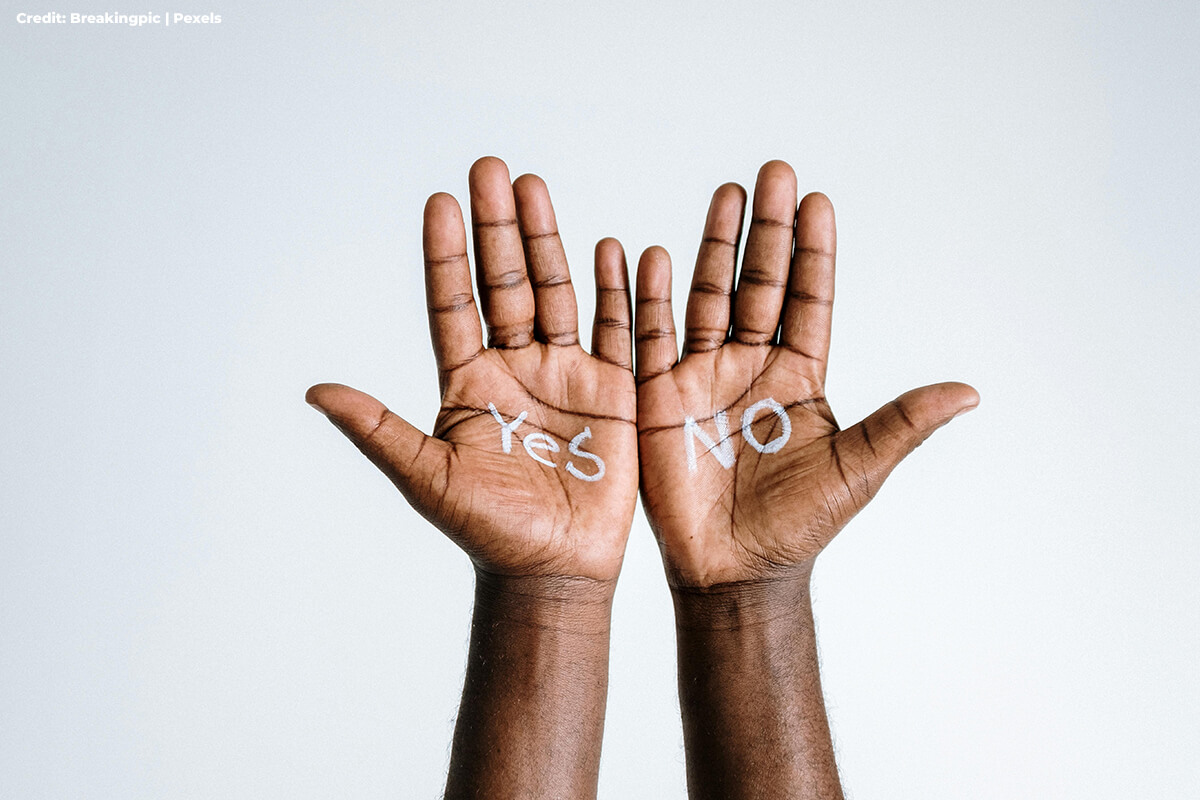
- Communicate boundaries with others. While other people in your life might be ready to go back to the pre-pandemic life, you might not be. So it would help if you can be upfront about your feelings. Be clear in communicating to them that it will take you time to feel comfortable going outside or attending gatherings again.
- Stand your ground. You may receive some pushback when you communicate your boundaries. Be firm, as only you have control over your boundaries and what makes you feel safe. Most importantly, you have to be comfortable with what your boundaries are, and what you feel is acceptable or not.
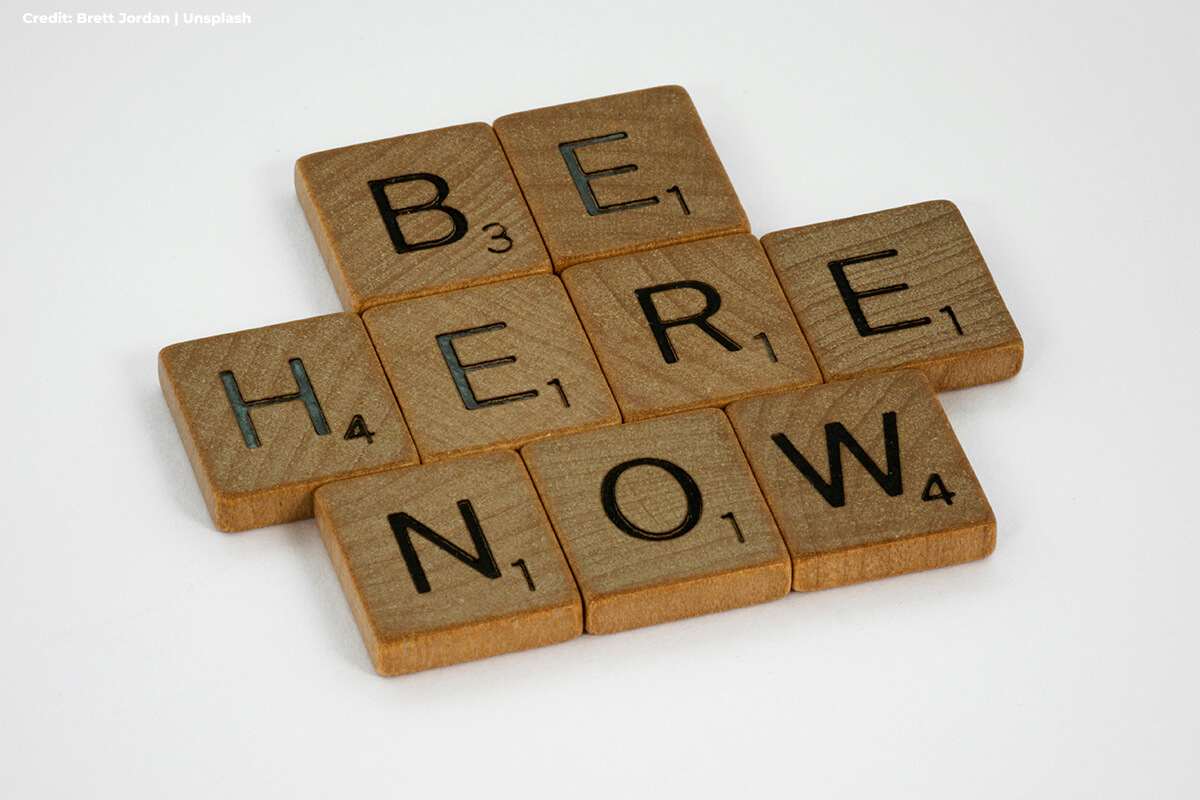
Anxiety Canada suggests building an anxiety management “toolbox” which includes tips for coping and dealing with the social anxiety that developed or worsened during the pandemic:
- Analyze your anxiety. You can manage it better when you understand it.
- Learn to relax. By learning to relax, you can turn down the volume on the physical symptoms of anxiety, which can make it a little easier to face social situations.
- Think realistically. People with social anxiety tend to overestimate the degree of danger in social situations. But ultimately, your thoughts are guesses about what will happen, not actual facts. Developing more realistic ways of thinking is an important step in managing your anxiety.
- Face your fears. An important, albeit complicated, step in managing your social anxiety is to face the situations that you have been avoiding because of social fears. Repeatedly facing those social situations will help reduce distress and in the long term, help you build up confidence.
- Keep it up. It takes a lot of hard work and perseverance to manage your social anxiety. In order to maintain all the progress you’ve made, you must always practice. Don’t be discouraged if you go back to your old behaviours. This can happen during stressful times. It only means that you need to go back to practicing using your tools. Remember that coping with this mental health condition is a lifelong process.
Self-Compassion Is Important
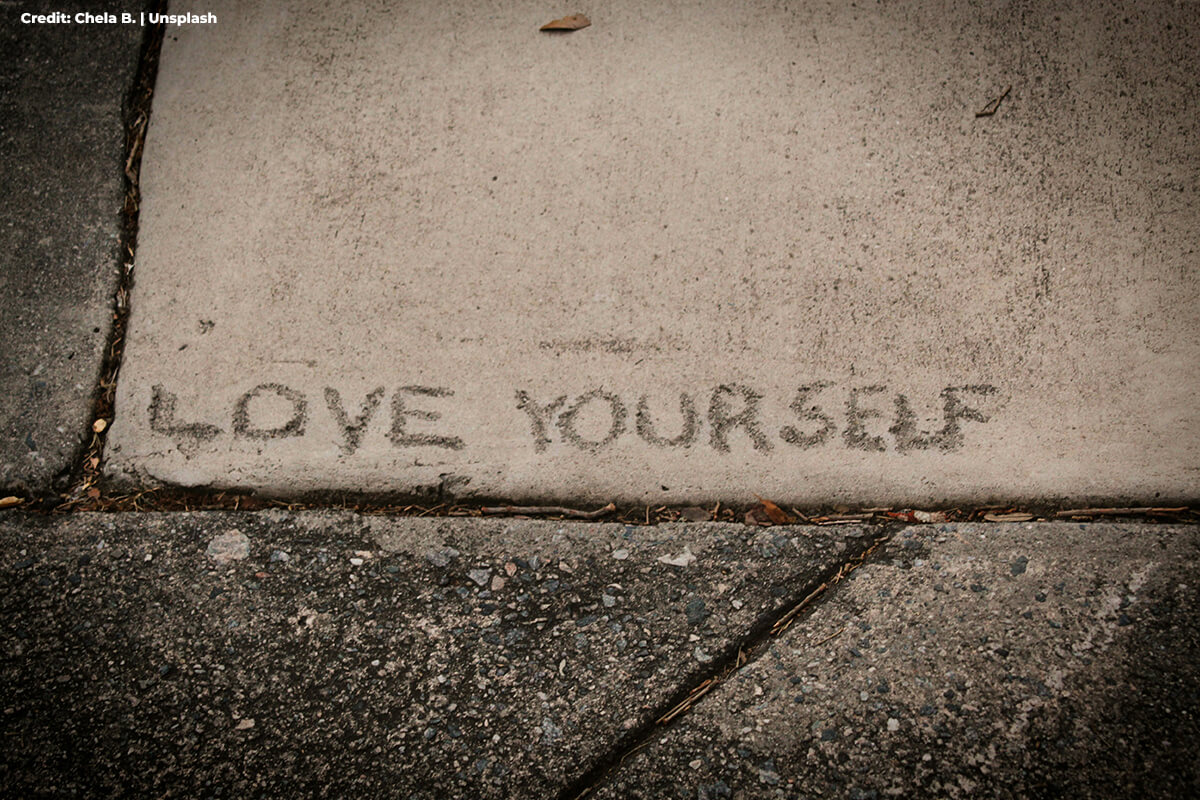
Give yourself time to adjust if you are dealing with social anxiety after the pandemic. To give your self-compassion skills a quick boost:
- Don’t beat yourself up if you’re unable to function. Instead, give yourself encouragement. When you find yourself unable to function, think of what you would say to a good friend when he or she is in a difficult situation, and then direct these responses toward yourself.
- Make slow but steady progress. Don’t push yourself to social situations that are uncomfortable for you. Go at your own pace when dealing with your social anxiety.
- Always find a way to validate your emotions. Keep in mind that all of your emotions are valid right now. Whether you are feeling socially anxious, or stressed, you are not alone and many others feel the same way.
One way to validate your emotions is by writing a letter to yourself describing a difficult situation, but without blaming anyone — including yourself. This exercise nurtures and validates your emotions and feelings. Meditation is also a great way to nurture and accept yourself while you’re in pain.
Seeking Professional Help
Seek professional help or therapy for your anxiety if you fear and avoid normal social situations because they cause embarrassment, worry, or panic.
If you were previously struggling with social anxiety, you may need to seek out professional help to deal with the anxiety that has gotten worse. You could also consider joining a group therapy program to practice your social skills as you work on your social anxiety.
On the other hand, if you have developed post-pandemic social anxiety, learn to see the signs and symptoms and seek professional help when you find it hard to function in normal social situations. There’s nothing wrong with seeking treatment now, even if it feels pre-emptive.
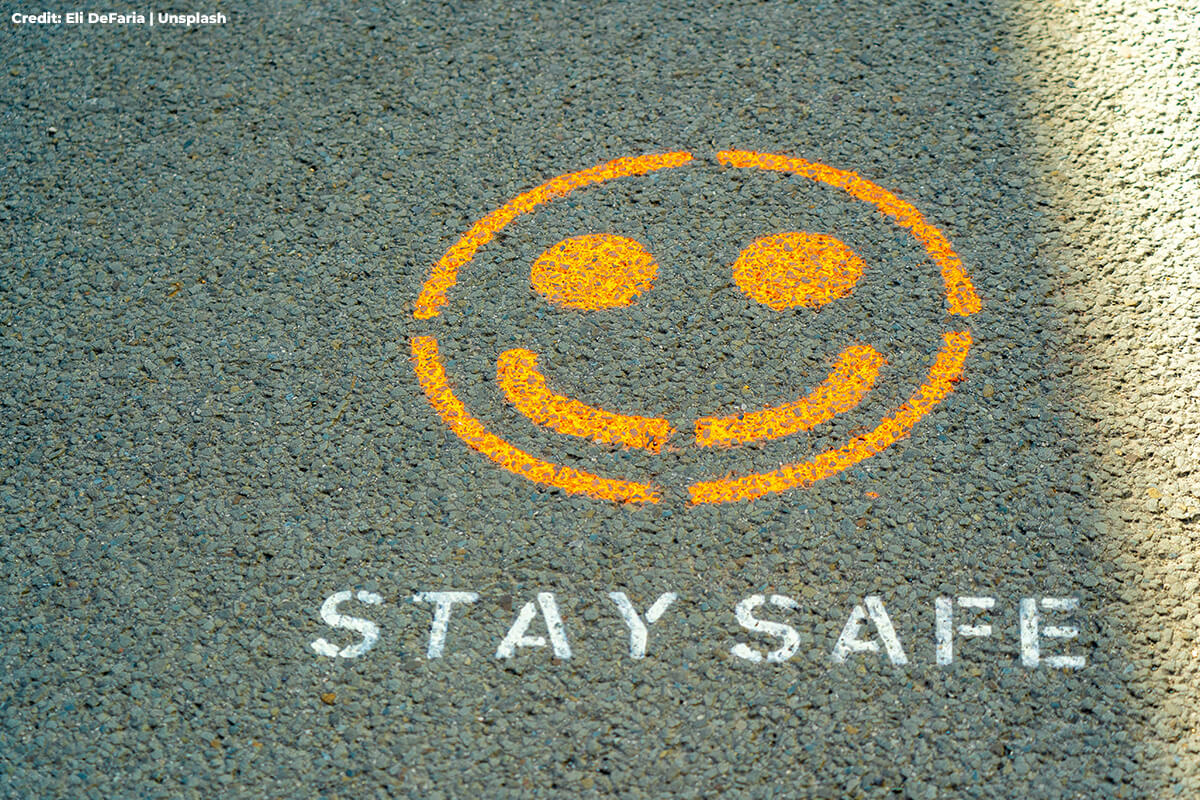
Are you or a loved one suffering from social anxiety? Wendy Limarzi’s Depression & Relationship Counselling Services can help you ease into the new normal via anxiety and panic assessment and treatment. Call (519) 253-1519 or email wendylimarzi1@gmail.com to book an appointment with us.

